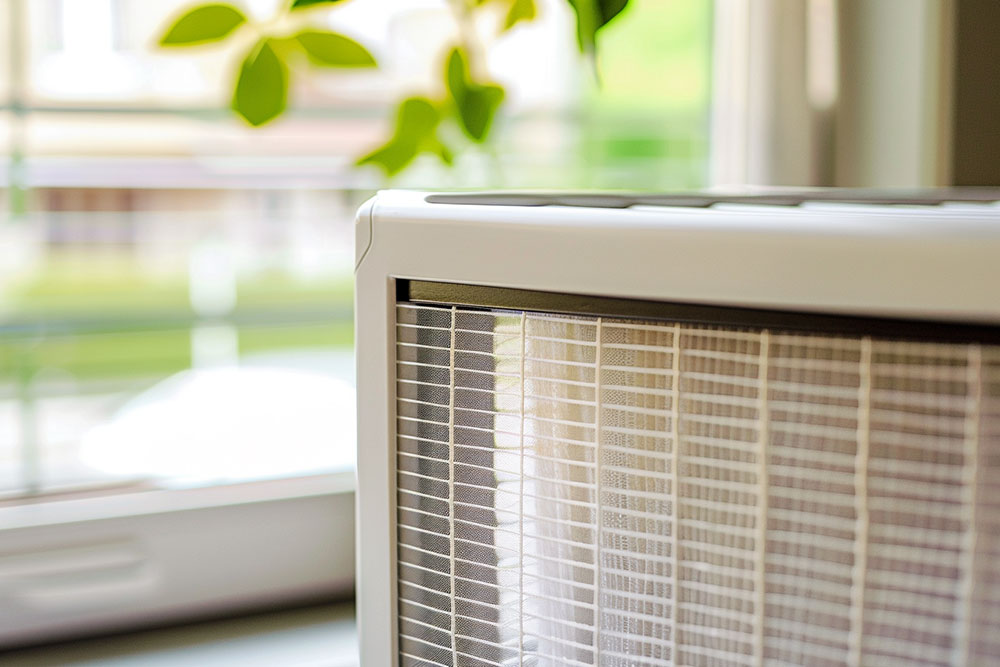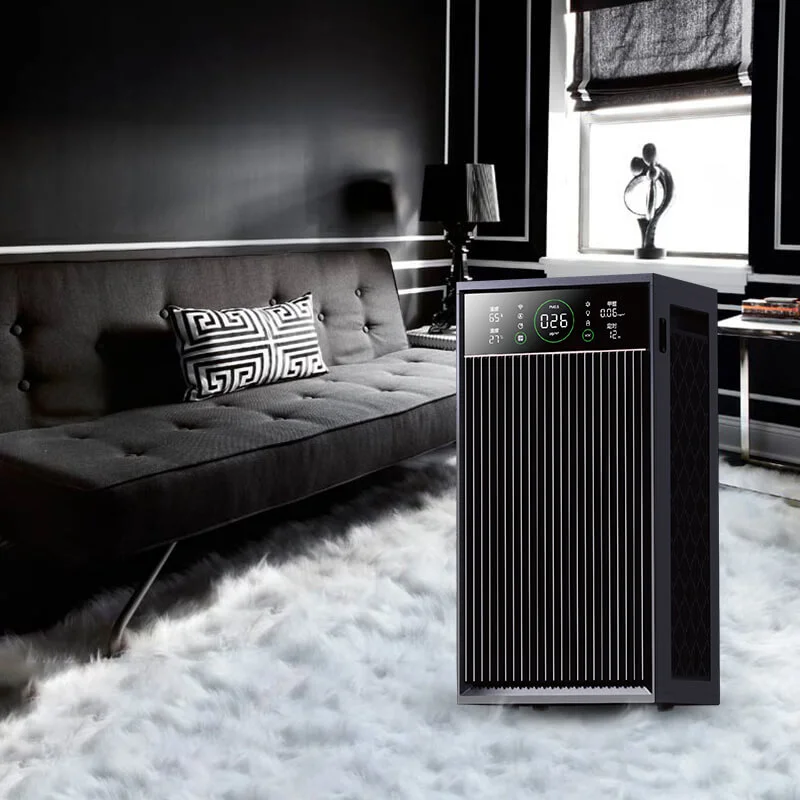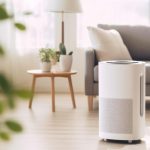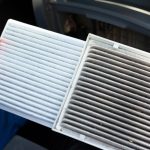Did you know air filters are the first line of defense in keeping our indoor air clean? They capture dust, allergens and other pollution. One way to know if a filter is good at its job is by looking at its Minimum Efficiency Reporting Value (MERV) rating.
This is like a grading system for filters. It scores them on how well they catch particles of different sizes. This system lets customers compare which filter is better at catching pollutants.
So, what influences a MERV rating, and why it matters? What categories do these ratings get grouped into? How do they affect heating, ventilation, and air conditioning (HVAC) systems? How much upkeep do you need to do?
Choosing the right air filter involves knowing all these things. This article explains MERV ratings in detail. It talks about their key role in managing the quality of indoor air.
Understanding MERV Rating
The MERV rating can help improve the air quality in your space. MERV stands for Minimum Efficiency Reporting Value. It’s a standard by the American Society of Heating, Refrigeration, and Air Conditioner Engineers. It tells us how effective an air filter is. A higher MERV rating means the filter can trap more dust particles and airborne contaminants.
Air filters have ratings from 1 to 16. These ratings are based on detailed tests. These tests check how good a filter is at trapping particles between 0.3 to 10 micrometers. A filter scoring between 1 to 4 on the MERV scale provides minimum filtration. Filters rated between 13 to 16 are able to capture even the smallest particles (as small as 0.3 micrometers) with at least 95% efficiency.
However, it’s important to understand that filters with higher MERV ratings can increase your HVAC system’s energy use due to reduced airflow. A higher MERV rating may need more maintenance. Finding the right balance between air quality, energy efficiency, and maintenance cost is important.
Your living conditions and health status also affect the MERV rating you should choose. People living in less polluted areas may choose filters with lower ratings. Those in high-pollution zones or with allergies may prefer higher-rated filters for cleaner air.
In summary, the MERV rating impacts air quality, system efficiency, and how often you need maintenance. Choosing the right MERV rating for your needs ensures a healthier environment. This highlights the importance of knowing about the product before buying to create a healthier living space and for environmental care.
Important Clarification on MERV Rating Selection
When considering the MERV rating that best suits your needs, it is crucial to consult with HVAC professionals. This is because using a filter with a rating too high for your system can lead to reduced airflow, which can strain the HVAC system, increase energy usage, and potentially lead to higher utility bills or even system damage over time. Professionals can provide guidance on the highest MERV rating your system can efficiently support, ensuring you achieve optimal air quality without compromising the longevity and performance of your HVAC system. This balance is essential for maximizing both air quality and system efficiency.
Breaking Down MERV Ratings
Air filter materials can either lift or lower a filter’s MERV Rating. The material could be synthetic fibers, fiberglass, or cotton – all of these affect a filter’s ability to catch particles. Did you know that if your filter has more folds it can catch more dirt? That’s because more pleats increase the surface area for trapping those unwanted bits and bobs. This added surface can give your filter a MERV boost.
How your filter is made is also important. When there are mistakes in the making, such as gaps, the filter won’t work as well. It’s a bit like having a hole in a net – the particles can just escape through. Bigger filters have an advantage because they can trap more stuff. Therefore, they usually have higher MERV ratings.
We can’t forget about the filter’s staying power. Good quality filters keep on catching particles over time. If a filter can catch loads of different particles, big and small, you bet it’s got a strong MERV rating.
How fast your air flows and how damp your air is can change your MERV rating. Fast air can push more particles past the filter and wet air can clog up the filter fibers. Your environment matters too. If you have a lot of small particles flying around this could lower your filter’s MERV rating.
Finally, don’t forget the filter’s thickness and how good your system is. Thick filters can trap more particles but be careful, too thick can mean not enough air can get through. Keeping your HVAC system in good shape can help your filter maintain its effectiveness. So, let’s remember that many things affect the MERV rating. In the end, you want clean air and a nice place to live.
Air Filters and HVAC Systems
MERV stands for Minimum Efficiency Reporting Value. It’s a scale that we use to know how good an air filter is for an HVAC system. Made by a group called ASHRAE, this scale can go from 1 to 16. The higher the MERV number, the better the filter is at cleaning the air. They can even catch tiny particles that are between 0.3 and 1.0 micrometers. By picking a top-rated MERV filter, the air quality inside your home can get a significant boost.
But, it’s important to pick a filter that fits your HVAC system. Filters with MERV numbers between 13 and 16 are great at cleaning the air, but they might slow down air flow. If that happens, your energy bill could get higher. So, The EPA suggests a MERV rating of 13. This is especially good for people who have severe allergies.
In homes, air filters normally have MERV ratings between 7 and 12. Keeping your HVAC system in shape, like changing filters on time, is really important. This will keep the air clean, keep the HVAC system from getting too strained, and save energy. In fact, the right MERV-rated filter can lower your energy use by 15%. That means you get clean air, a good working HVAC system, and savings on your energy bill.
Boost Your Air Quality
Are you looking for an effective solution to clean and purify the air in your space? HOKO presents the CADR2000 Large Room Air Purifier. Engineered with top-notch technological advancements that ensure a 99.94% bacterial removal rate and eliminate pollutants, allergens, and dust. Suitable for large spaces, this air purifier not only assures clean air but also saves on your energy bills. Feel the freshness and reap the benefits of a high MERV-rated air purification system with HOKO!
Regular Maintenance and Monitoring
Having a clean air filter is vital for keeping your HVAC system in great shape. When your filter is dust-free, it uses less energy and makes the air inside your home cleaner. So, you’ll save money and breathe easier. The rate at which you’ll have to change the filter will depend on your filter’s MERV rating. High MERV filters catch more particles, getting filled quicker and needing changes sooner.
It’s a good idea to stick to a replacement plan. Generally, you’ll want to replace one to two-inch filters every 90 days. Four-inch filters can be changed every six months, and a five-inch filter once a year. If your filter is catching a lot of dust or you have pets or allergies, you’ll probably need to switch it out more often.
A quick check of your filter once a month will help avoid build-up of dust and keep your system running smoothly. It’s particularly important to do this when your HVAC is getting a lot of use.
Choosing the right filter is another critical step. Watch the size and the MERV rating to make sure you’re not working your system too hard. A filter that’s too restrictive can cause problems.
Don’t forget to call in the pros now and then. They can give your system a good check-over and make sure everything is in shape to run for a long time. They’ll also help ensure the air in your home is good to breathe, saving you from issues like dust mites and pollen.
With tech coming into the picture, you can now get alerts telling you when your system needs attention. By keeping a close eye on your filter, you could make both the environment and your system’s health better. Not doing routine maintenance can mean higher bills and a shorter-lasting HVAC system. Regular care of your filter can help keep the environment clean by reducing energy needs and getting rid of airborne particles.
Understanding MERV ratings can really help you pick the best air filter for your home. The MERV rating you’ll need will depend upon how much your system is used, the efficiency of your system, and how often you’ll need to replace the filter. Knowing your way around filters means better air quality in your home, which is good for everyone. Keeping up with filter changes is good for your health, your wallet, and the planet.





